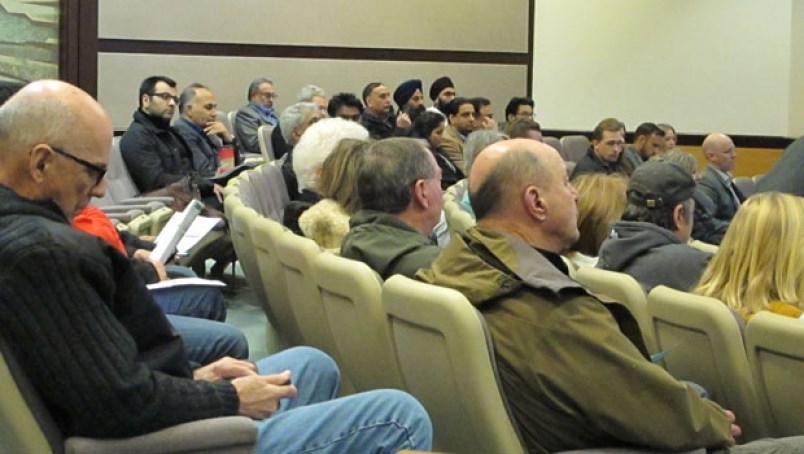It is certainly a tale of two cities. You can be for or against rezoning, densification and creating housing choice. That is fine. It is quite interesting, regardless, to note how development applications in the cities of Surrey and Delta played out last week.
Last Monday, the City of Surrey gave first and second reading to Century Group’s Holland Parkside proposal. The plan calls for a 19-storey, 204-unit purpose-built rental building, a 10-storey office tower, a 42-storey condominium building and a 36-storey condominium building.
The King George Boulevard frontage would have retail and commercial storefronts while the courtyard within the three-acre site would be richly landscaped with an emphasis on food and urban agriculture.
You will recall that Delta council recently turned down an application for an additional tower on Scott Road. Delta has a plan for this corridor which makes sense. The developer initially proposed a much more modest application but was encouraged to meet the scale of the earlier Delta Rise project that was endorsed by former mayor Lois Jackson’s council.
The former mayor voted against the second tower oddly enough. She cited verbiage from the urban planning think tank Sustainable Cities Collective (now Smartcitiesdive), suggesting many areas in America with high-rises ended up like “ghettos and bad areas that no one could maintain.”
If you’ve had the opportunity to drive around Vancouver, Burnaby and Surrey you will have seen the successes of Brentwood, Lougheed, Central City and other transit-oriented hubs that are meeting housing demand and building sustainable neigbourhoods. Having lived in a high-rise in Vancouver’s West End for several years, I can say that was one of the best times of my life and I would definitely consider it again. Scott Road needs a clean-up.
Back to South Delta where a public hearing was held last Tuesday regarding a 40-unit townhome development application on 57th Street. The subsequent vote by council denied the application in a 4-3 margin. Density, traffic, infringements on public domain and, of course, affordability were the major concerns despite the positives of the proposal, including its proximity to the Ladner bus loop.
Coun. Jeannie Kanakos went on the record to say that she “wants to support affordable housing in Ladner. Show me how we can do that.”
The average cost to build around 10 years ago was about $200 per square foot. Today it is pushing the $400 mark. Developers have to make money. Every business does. The median household income in Delta is $92,000. To qualify for a $750,000 townhouse, you will need to put $50,000 down and fork out something in the neighbourhood of $3,300 a month for a 25-year mortgage at three per cent.
For a young person or family, these are daunting and discouraging numbers but are clearly illustrative of the paradox in the quest for the magical and clearly illusive concept of affordability.
With densification out of the picture in the Tsawwassen town centre for the foreseeable future, housing stock will not be able to keep empty nesters and young people in our communities which does not bode well on many levels.
Mike Schneider is founder of Project Pickle and likes to write about growing, cooking and eating food. He is a Jamie Oliver Food Revolution ambassador.



